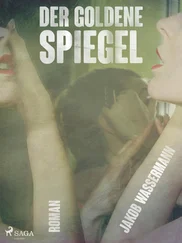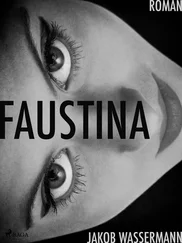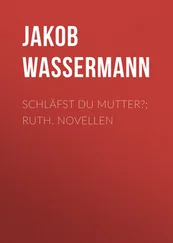RIEMANN
With surprise and dismay I saw my friends begin to withdraw from me, Fürst and Muschilov as well, though they at least offered excuses when I suggested a meeting. I sensed the reason of course: they disapproved of my marriage, there were all sorts of gossipy rumours about Ganna going the rounds, one man even sent me an indignant letter in which — almost like Fedora — he terminated our friendship and made the absurd remark that I was about to throw my life away. I tossed the letter into the fire. What pained me more was that Eduard Riemann had been avoiding me for some time. I wanted to clear the air, and since I knew he went every evening to a chess club of which I too was a member, I went along there one night quite late, asked him into a room where we were alone together and had it out with him.
‘I know what you hold against me,’ I started violently, ‘our mutual friend Fedora has set you against me. I don’t understand. It’s a conspiracy. What has Ganna done to incur your disfavour? Isn’t it enough if I love her? Do I need your consent?’
‘You’re asking the wrong questions, my dear Alexander,’ he replied with his strangely nasal, droning voice, ‘that’s not the situation. You have a couple of dozen friends, here and elsewhere, who are following your career with very specific expectations. High expectations, too. To them the thought of you selling yourself — I’m sorry to put it so bluntly — is just hard to take.’
‘Me selling myself? Riemann! You’re not serious. Selling myself! Think about what you’re saying!’
‘All right, what are we to think? It doesn’t seem to us that Ganna Mevis is the right woman for you.’
‘How not?’
‘That’s not easily explained. We’re fearful for you. You’re going off on a tangent. You’re in the wrong setting. We’re afraid you’re acting against your better instincts.’
‘Let me tell you, Riemann, there is no price for which I would, as you put it, sell myself. Don’t you know me at all? Do I need to say that?’
‘No, you wouldn’t do it directly.’
‘And how would I do it indirectly?’
‘The forms are often veiled, but the possibilities of self-deception are limitless.’
‘I have honestly and strenuously examined myself.’
‘I believe you. Even so: undo what you’ve done. Go to India, go to Cape Town, go anywhere. If you don’t have the money, I’ll lend you whatever you need. I’ll take the responsibility for settling the matter.’
‘My God! What are you saying! What nonsense! It’s too late for any of that.’
‘I don’t agree.’
‘I … I can’t live without Ganna.’
‘That’s a different matter, but I don’t think that’s true either.’
‘What’s this all about, Riemann? I’m not welded onto her. If things go wrong, I can always end it.’
Riemann looked at me with strange, benevolent scepticism. ‘You never were much of a psychologist, Alexander,’ he said. ‘Do you really think you can get free of her?’
I was in consternation; I felt like fizzing up in rage, but he went on calmly:
‘And one more thing, my friend. Did you ever take a good look at the mother? That woman is disturbed. And that’s putting it mildly. With that in her genes … True, it’s a large family … but Ganna is on the downward line. Her psychic balance … I’m not sure … if you had eyes to see …’
The innuendo was painful to me. I pushed the argument away from me. Unfortunately, that’s always been my way with inconvenient arguments.
‘I don’t want to think about it,’ I said, ‘it’s going too far, this is meddling in God’s affairs.’
‘We can’t help ourselves, my friend; that’s His way of setting us in motion.’
I didn’t go to bed that night. First I walked the streets in wind and snow, and then I sat till dawn in a bar on the outskirts of town, among hauliers and market women.
WEDDING PRESENTS
I stood with Ganna in front of the pushed-together tables where our wedding presents were displayed. There were garish sofa cushions with Secession patterns, eccentrically shaped lamps, twisted bronzes, metal frog and dog candle holders, models of the Stefansdom and the Tomb of the Medicis as paperweights, nymphs with nozzles in their heads as perfume dispensers, Venetian gondolas as desk ornaments, gilded pine cone picture frames. And then there were useful, practical things, books, silver, porcelain, vouchers for linens and furniture. We weren’t going to set up house immediately; we intended to go travelling for a year first. I was delighted with the presents. I had never had such a warehouse full of possessions, real possessions. All of it seemed beautiful and good. I didn’t think it was real, but then what was real to me? Not even my shirt or my pen. The continual nodding association with people who took these fata morgana things for real was incredibly sapping. Not just that either. Sometimes I got the sense that it was killing something within me. I couldn’t say what, but it was certainly killing something. It was no more than logical that they couldn’t help taking true things for illusions; that was their nature. Here, at the present table, behind all this foolish pleasure in things, I was tormented for the first time by the fear that Ganna might have something to do with the little killings that I was supposed to agree to and introduce into my life. What else did the light in her eyes signify, or her jubilation? Certainly she lives with a divided consciousness, half among human beings, half up in the stars. A princess, getting hitched. A fairy-tale creature floating off into new realms of bliss. She no longer recognizes anyone. She mixes up faces and objects, and vice versa. If you wake up in the morning with the feeling that you’re a rose, or a sunstruck cloud, then you can’t speak in a normal way with human beings, then your speech is bound to be a little haywire. Pseudo Gothic, pseudo Baroque, pseudo Renaissance — what did it matter? They were proof of love, proof of victory. ‘Look at this,’ she said tenderly, ‘this is from Auntie Jetta, and this is from Uncle Adalbert, and this is from Court Councillor Pfeifer, isn’t it sweet of her to have thought of us!’ And Ganna’s delight communicated itself to me as though I’d been given a magic potion to drink.
THE WEDDING
And that worked on the day of the wedding as well, which was a snowy day in January. In my memory I have it as a day also of indescribable noise, for hours and hours. Squawking women, false male voices, clatter of plates, chairs being dragged, champagne corks popping, smells of meat, sweet and sour tastes on my tongue, incessant opening and closing of doors, and coming and going, dutiful telegrams, hands I have to shake, dry and moist, bony and fleshy, warm and cold, rough and smooth, supple and stiff. A humiliating and hurtful wedding, because official, formal language presumed to curtail personal freedoms: like reading a convict the prison rules. The image of Ganna, furthermore, done up in white, and seeming to float over the ground, and then sat at the table with the oddly shameful, conniving smile of a conventional bride. An image of her mother, wrapping her arm round my shoulder, pulling me over to a window seat where, surrounded by noise and bustle, with timid wandering eyes and an alarming laugh, she proceeded to tell me strange, unexpected things, a ghost at a party, heard by no one and ignored by all except me. This last was an insistent, drilling sort of impression.
Then the speeches. The brothers-in-law, showing off their culture and their reading; the friends of the house, who had taken pains to be droll; a colleague of the Professor’s from the philosophy department, who in a thunderous voice, as for the opening of a monument, praised Ganna’s virtues; a military man, an actual general — I had never yet shared a meal with a general — who toasted ‘the splendid and promising young groom’ and expressed the wish that he might ‘continue to walk the paths of science and art’. All in all, when I think about it today, it was a concentrated parody of the social mores of the epoch. Life of a comfortable middle class condensed into a matinee performance, with musical accompaniment from a mildly soused four-piece band. But I didn’t at all feel myself to be a dispassionate observer. No, I was in play, I was active and engaged. When at last the six daughters and the established sons-in-law plus half a dozen assorted grandchildren filed past the Professor’s chair to kiss him on the forehead after his pithy concluding speech; when he then got to his feet, towering in their midst, the kingly patriarch and all-powerful overlord of the kraal, so that one imagined the future of the clan assured well into the next century, by which time his person would have become mythical and emblematic; and when Ganna, overcome by the greatness of the historical moment, sank against his chest and, sobbing, thanked him for everything he had given her, then I myself was moved, and looked at the red-bearded patriarch as if to my own patron.
Читать дальше
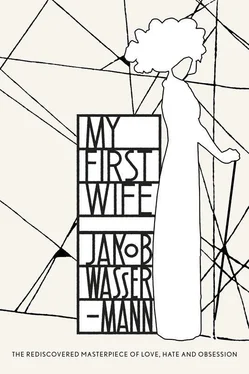





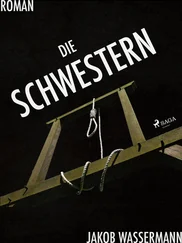
![Jakob Wassermann - Issue Does Not Exist],errors:{](/books/585068/jakob-wassermann-issue-does-not-exist-errors-thumb.webp)
